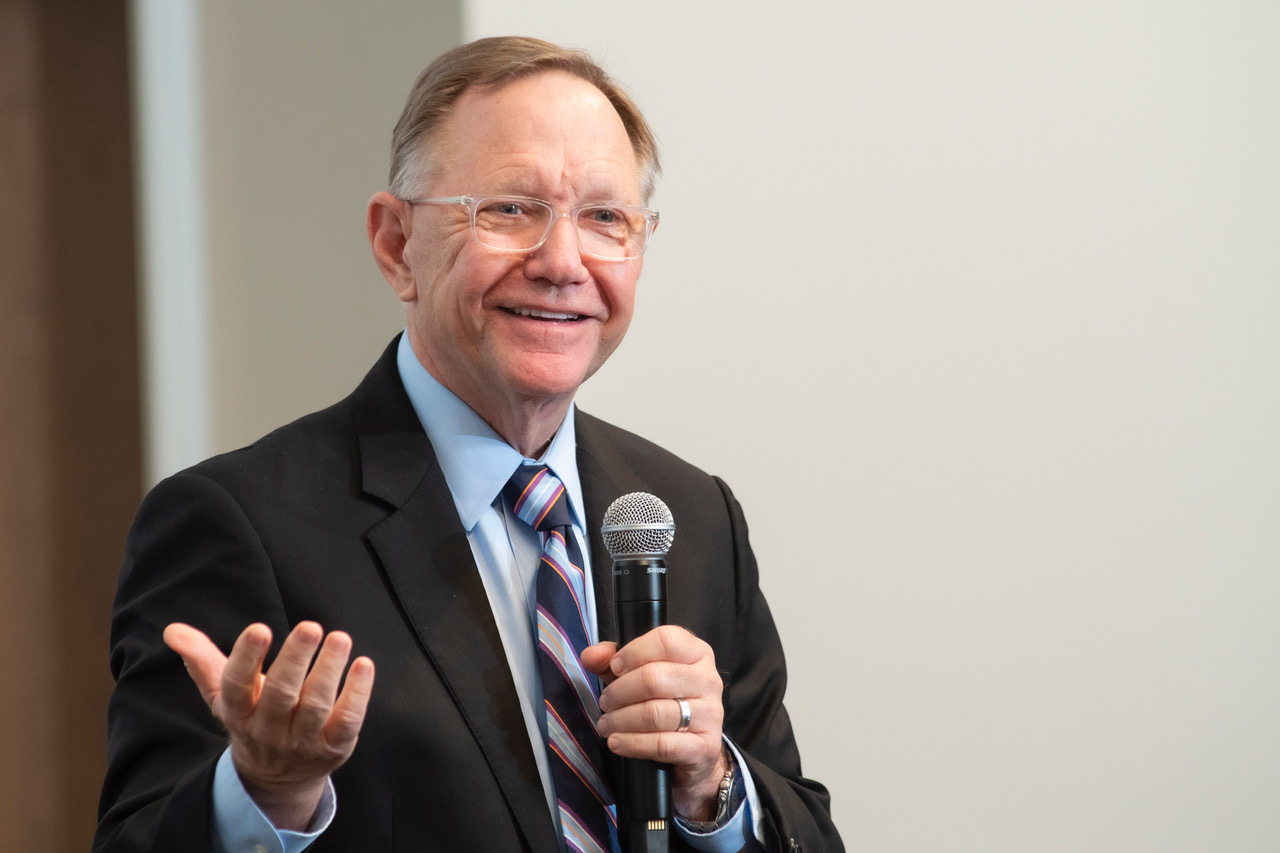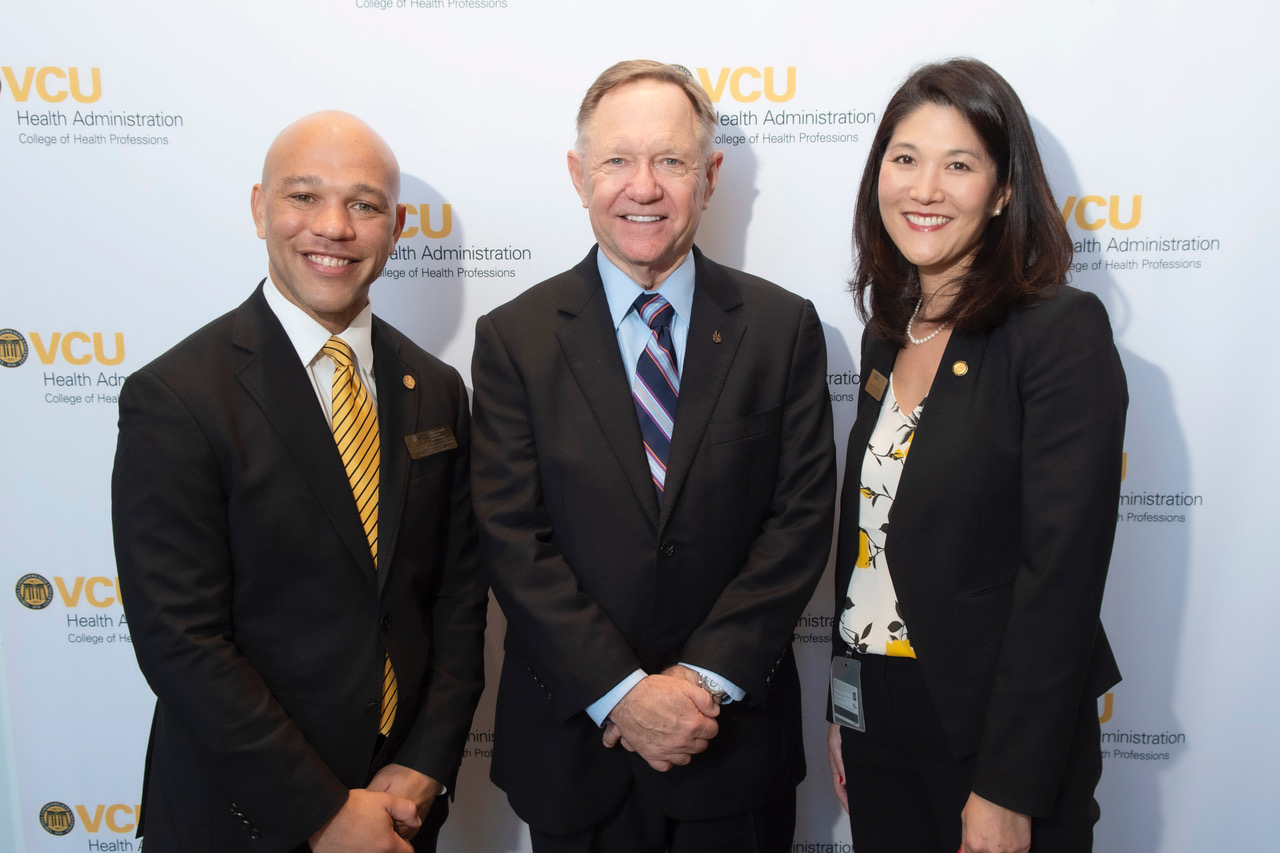Quint Studer to VCU Health Administration: “Focus on positive, take care of yourself”
Healthcare leader Quint Studer says that when gets up in the morning, he prays that nothing gets in his way as he tries to be helpful.
“We all have replenishments,” Studer told an audience of more than 200 students, alumni, and faculty in person and via video who gathered to hear him speak at the VCU Department of Health Administration on Nov. 3. “My replenishment is helping others.”
 Studer, an entrepreneur, best-selling author, and former president of Baptist Hospital in Pensacola, Fla., suspected those in the audience chose their profession because they also wanted to be there for other people.
Studer, an entrepreneur, best-selling author, and former president of Baptist Hospital in Pensacola, Fla., suspected those in the audience chose their profession because they also wanted to be there for other people.
“Your DNA calls for you to be helpful,” Studer said. “Your DNA probably brought you into healthcare.”
But Studer added that what’s also ingrained in many healthcare professionals is perfectionism and a focus on what’s wrong instead of what’s right. “Sometimes we’re so helpful to others, we don’t take care of ourselves,” Studer said.
“When we go home at night, we think about what we didn’t do instead of what we did,” he said. “We think of that one employee we couldn’t reach. If you’re a physician, you think about of the patient you wish you didn’t have to tell that news to. We bring home losses, but don’t enjoy the wins.”
But Studer urged the audience to take some moments to focus on the positive.
 Studer’s talk was the latest Paul A. Gross Landmarks in Leadership Lecture, entitled “Creating a Culture of Replenishment.”
Studer’s talk was the latest Paul A. Gross Landmarks in Leadership Lecture, entitled “Creating a Culture of Replenishment.”
It came the day before he facilitated the department’s first executive leadership workshop. Focused on the “Human Capital Ecosystem,” about 70 C-suite leaders from UVA Health, VCU Health, Bon Secours Mercy Health, HCA Healthcare, Riverside Health System, Sentara Healthcare, and other state healthcare organizations attended the professional development event at the VCU College of Health Professions.
The Human Capital Ecosystem was developed by Studer and colleague Dan Collard with input from healthcare leaders. It focuses on six elements that foster engagement and the experience of belonging for the healthcare workforce. During Studer’s workshop, he mostly focused on two elements of the framework, “Skill Building and Career Development” and “Resources and Support.”
The first component focused on what Studer calls “precision leadership development,” which utilizes an assessment to guide strategic opportunities for managers to enhance their performance. The Resources and Support piece addresses leaders focusing on mental health and well-being. Using batteries as a metaphor, Studer encouraged leaders to ask people how “charged” they were feeling that day – to create safe spaces for open dialogue about when we are in pain, fatigued, or experiencing anxiety.
Studer demonstrated courage and vulnerability in both talks, sharing that he was recently diagnosed with melanoma. His doctor looked him in the eye and told him: “We’re going to get through this together.”
“He reduced my anxiety,” Studer said. “You know what our job as leaders is? It’s to reduce anxiety.”
“At a time when so many members of the healthcare workforce have been struggling emotionally while trying to keep our organizations afloat, Studer’s perspective was so important for our students, faculty, alums, and health system partners to hear,” said Paula Song, Ph.D., Richard M. Bracken Chair and Professor of the department. “I believe we all left inspired and more committed to investing in our most important asset – our people.”